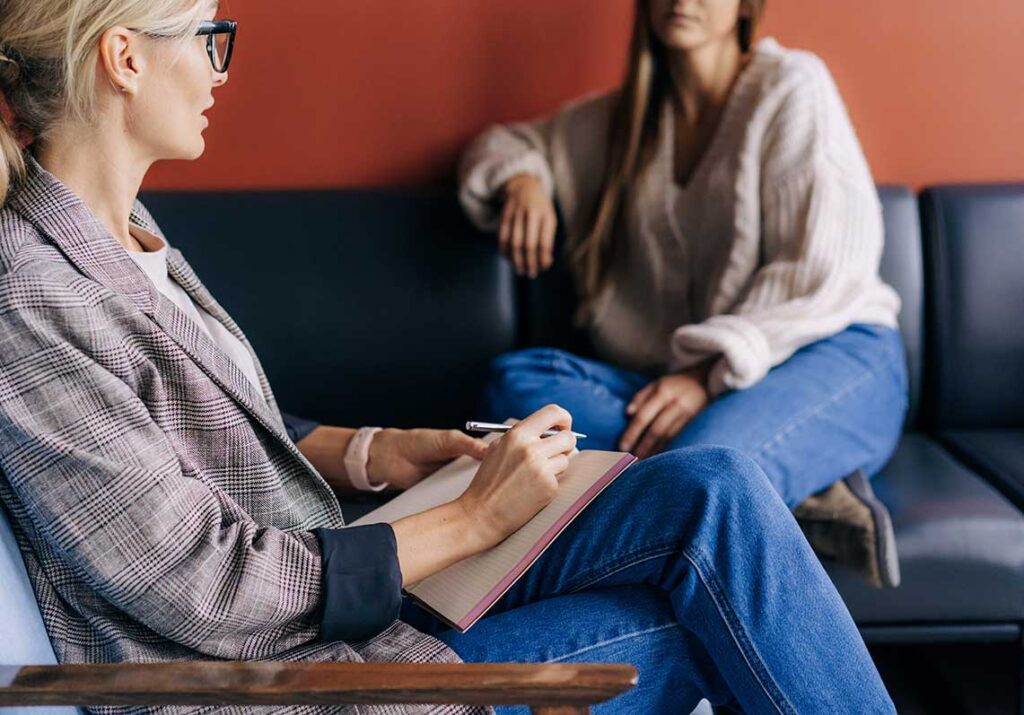Many individuals sit with psychedelics to improve self-awareness. They seek to gain more insights into themselves and their pasts, giving them direction for the future. But there is much more to psychedelic medicines than introspection. Opening yourself up and tackling your beliefs, convictions, and judgments in this way could help you form better relationships with your friends, family, and partner.
It takes time and effort to build authentic connections and maintain healthy bonds, but if recent research is to be believed, psychedelics could fast-track that process.
How Modern Couples are Using Psychedelics
In 2022, Vice reported on couples that were turning to psychedelics as a way to get closer, forge stronger bonds, and deal with deep-seated issues that may be affecting their relationships. (1)
They spoke with a psychologist and rehabilitation specialist who highlighted the potential of psilocybin in marriage counseling, noting that it helps to break down walls and filters.
These sentiments were echoed by Time a year later in a piece on how “psychedelics could revolutionize couples therapy.” In this case, the couples in question spoke mainly about MDMA, but the intentions were the same, with one subject noting that MDMA helped to open up doors that they “didn’t even know were there” while making it easier for them to hash things out. (2)
A few times a year, the couple in the Time article would call a babysitter, go out for dinner, and then book a hotel room for the night. Under the influence of MDMA, they would then talk about everything from chores to parenting and sex, getting everything out in the open.
How Can Psychedelics Help a Relationship?
The goal, it seems, is less about a combined spiritual journey or even a little recreational fun and more about encouraging couples to open up and refrain from bottling up the distrust, disagreements, and other issues that can eventually lead to arguments and a breakdown of the relationship.
A 2024 study found that nearly a quarter of all Americans kept a secret from their partner before moving in with them, and while the majority felt guilty about keeping secrets, fewer than half were planning to reveal everything to their partners. (3)
It’s a situation that many of us can resonate with. Whether you’re angry or upset about certain things they say or do, keeping a secret because you‘re worried about how they will react, or simply closing yourself off emotionally because you don’t know any other way, everyone is guilty of being a little secretive from time to time.
Those secrets can cause tension in a relationship, and as communication breakdowns and unresolved conflicts are often cited as the reason marriages and relationships end, finding a way to open up could be the solution.
What the Research Says
Psychedelics have different mechanisms of action, so the effects largely depend on the substance.
MDMA
MDMA is known as an empathogen, as it promotes a greater sense of empathy and may heighten emotional and sexual encounters, earning it the nickname “the love drug.” It’s also a stimulant, though, and the effects are largely dependent on the dose.
A 2011 study found that while small doses of MDMA increased feelings of loneliness, higher doses made individuals more “friendly” and “loving.” The same study found that subjects were less likely to identify “threat-related” facial signals, which could be one of the reasons they are more likely to approach strangers and open up to them. (4)
In a safe and professionally assisted environment, MDMA could be very helpful for couples who struggle to open up and have issues to work through. A 2021 study on MDMA-assisted couples therapy for PTSD noted a “significant improvement in empathic concern” for the individual with PTSD and suggested that these feelings largely remain even after the initial therapy sessions have concluded.
Psilocybin
Psilocybin is the active ingredient in “magic mushrooms” and is one of the most heavily researched psychedelics. It’s also one of the most promising.
A study by Johns Hopkins found that a single dose of this psychedelic was enough to initiate a “measurable personality change” in approximately 60% of participants. (5)
The biggest change was their openness, with researchers finding that the changes were greater than the ones observed in healthy adults over several decades of life experiences.
They went on to say that a user’s personality rarely changes after 30. If they are in a relationship, and things aren’t going how they want, they may struggle to come to terms with that fact.
Encouraging openness could facilitate uninhibited conversations between couples, allowing them to tackle subjects previously unexplored and deal with issues and conflicts that had been repressed.
LSD
In 2017, California-based author Ayelet Waldman published A Really Good Day, a book about her journey microdosing LSD. She described her journey with psychedelic medicine and wrote about how microdosing helped her balance her mood and improve her marriage.
In an interview with The New York Times, Waldman spoke about struggling with her mood and feeling like she had reached a low point. She didn’t turn to psychedelics for “a lark” and did so because she “was afraid [she] was going to die”. (6)
The benefits of LSD are similar to those of psilocybin. A 2016 study, for instance, noted that individuals were more positive and open after just a couple of weeks. It improved mood and optimism, and it did so without changes in delusional thinking. If the right dose is used under strict supervision, it could help couples reconnect and delve deeper into their issues. (7)
Based on our research, however, it doesn’t seem to be as common as other psychedelics in couples therapy.
Ketamine
In 2023, a coach in Third Wave Community linked to a Newsweek article written by Marissa Feinberg. Feinberg wrote about her experiences with ketamine-assisted therapy and how it helped her to turn around her dating life. She experienced a radical shift in her relationships and gained a “new lens on life”. (8)
Ketamine therapy is used for a variety of conditions, and it’s also being sold to couples who want to fix or strengthen their relationship.
Therapy usually begins with an assessment of the couple and an analysis of their goals, histories, and sensitivities. After additional discussions and preparation, administration begins, and a therapist remains present throughout the session.
The most notable benefits of ketamine concern its effects on depression, but it has also been dubbed a “transformational catalyst” due to its ability to encourage individuals to open up and embrace new ideas and concepts. This could, in theory, make couples more receptive to one another and help them tackle issues that had previously been ignored and repressed. (9)(10)
Conclusion: Psychedelics & Improved Relationships
Mistrust, communication issues, and conflict have brought about an end to many relationships. Marriage counseling can help, but only if the couple is willing to bring down their barriers and discuss their issues openly and honestly.
That’s often easier said than done, but psychedelic therapy could be the solution. If they are combined with supervision during a guided therapy session, psychedelics like MDMA, psilocybin, ketamine, and LSD could unlock doors that were previously wedged shut.





